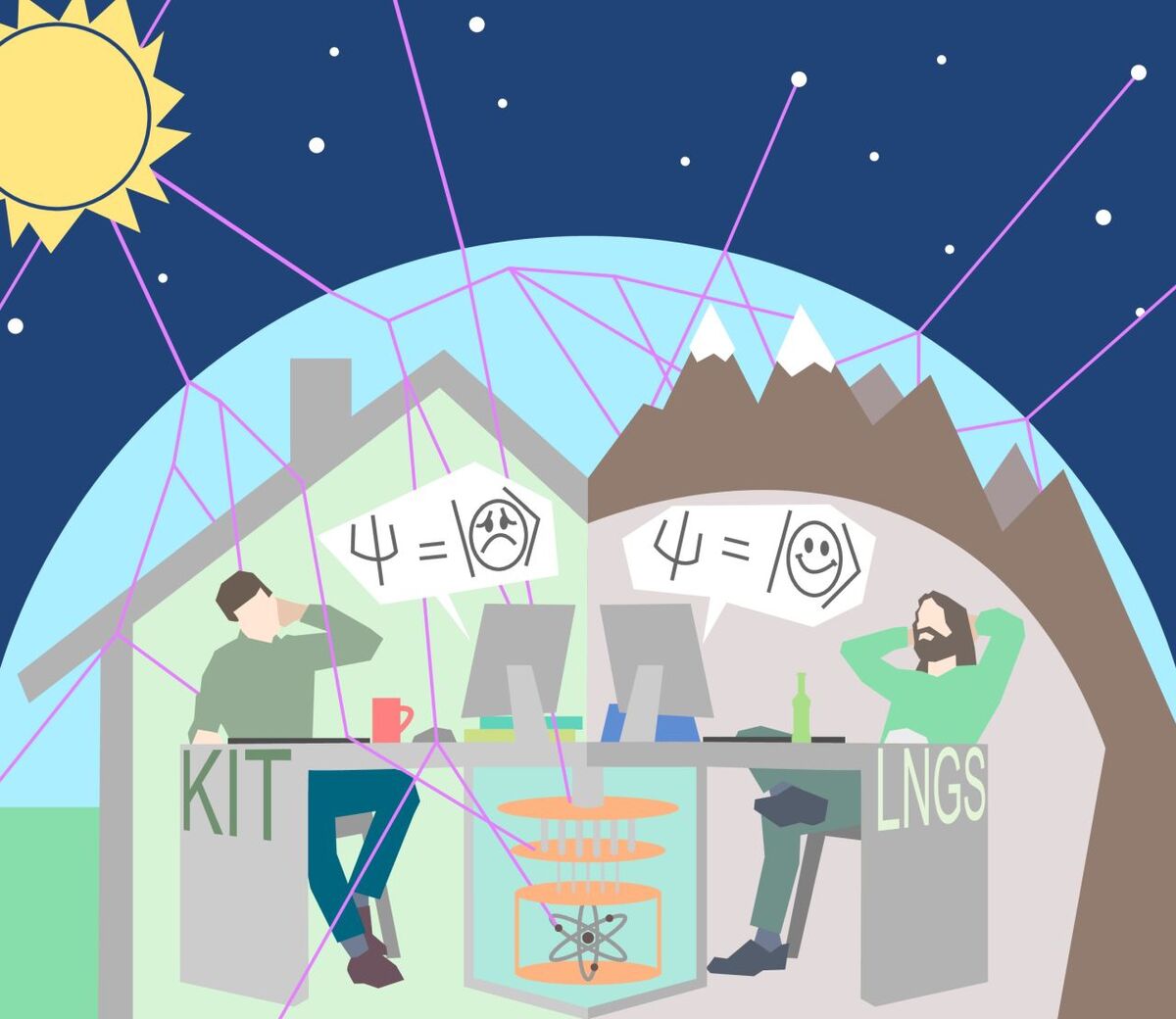Quantum Computers: A Future Underground?
Superconducting circuits are one of the leading technologies in the development of quantum computers. Superconducting means that the circuits have lost their electrical resistance at low temperatures. The information is stored in superconducting qubits. The qubit plays the same role for quantum computers as the bit does in classical computers. However, it can assume not only the values zero and one, but theoretically an infinite number of superposition states. One of the biggest challenges is that the superconducting qubits can only retain their quantum superposition state for a very short time, as they are disturbed by several noise sources, including natural radioactivity, for example.
A working group of the Italian Istituto Nazionale di Fisica Nucleare and KIT has now succeeded in protecting the building blocks of qubits from the effects of natural radioactivity in the underground laboratory Laboratori Nazionali del Gran Sasso (LNGS), thereby significantly improving their stability. The work has just been published in the journal Nature Communications.
"The underground facilities are located under 1,400 metres of rock, so natural radioactivity from cosmic rays is reduced by a factor of one million," explains Francesco Valenti, a PhD student in Ioan Pop's group at KIT. "Radioactivity induces simultaneous faults in circuits on the same chip. This is particularly disadvantageous for quantum processors, because error correction is based on the fact that if there is an error in one of the qubits, the others can still receive the information." INFN researcher Laura Cardani sums-up the results as follows: „Our study shows that a significant improvement can be achieved by operating in an environment with very low radioactivity “. Regarding next steps, Ioan Pop emphasizes that it is important to gain more understanding of the exact processes by which radioactivity degrades quantum circuits, and to start operating quantum processors underground.
jh, 08.06.2021
BU: An international research team has succeeded in improving the stability of quantum circuits by operating them shielded from natural radioactivity by cosmic rays underground. (Figure: Francesco Valenti, KIT)

